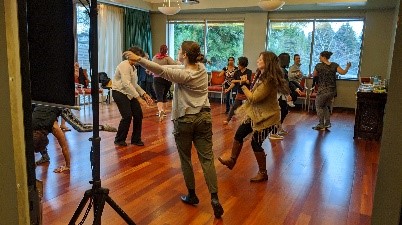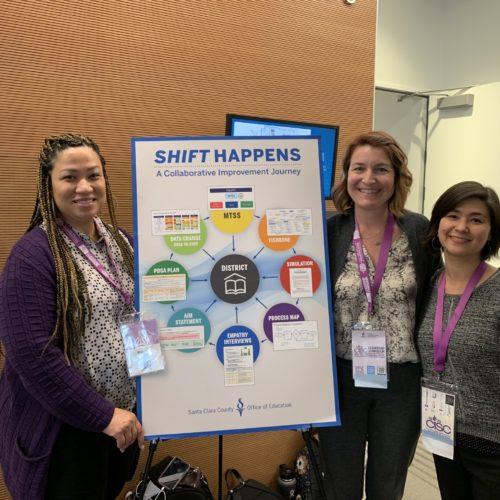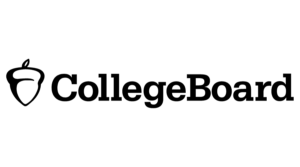Announcements
ACSA Superintendents Symposium Wrap Up
The Association of California School Administrators (ACSA) has released a video showcasing some of the highlights from this year’s Superintendents Symposium in Indian Wells. The highlights include interviews with San Bernardino County Superintendent of Schools Ted Alejandre, Beaumont Unified School District Superintendent Terrence Davis, Cold Spring Elementary School District Superintendent Amy Alzina, Ed.D and many more.
The annual event brings school leaders from around the state together for two and a half days of professional learning, networking and advocacy. The 2021 symposium will take place January 27-29 in Monterey.
Watch the video here
2020 California Student Mental Wellness Conference
The Fourth Annual California Student Mental Wellness Conference, Promoting Student Mental Wellness and Improving School Climate, sponsored by Wellness Together and the CDE, takes place on March 23 and 24, 2020, at the Anaheim Convention Center. The principal focus of this two-day conference is to learn about interventions and resources to successfully support students who may have mental health needs and to discover new ways to keep our students engaged in learning despite any behavioral difficulties they may be experiencing.
Read more here.
Emergency Grants for Schools and Students Impacted by 2018 Wildfires and Emergency Incidents
The CDE will receive more than $21 million in federal disaster recovery grants to help students and schools impacted by wildfires and related events in 2018. The 2019 Immediate Aid to Restart School Operations (Restart) program will fund $16.5 million of the awarded grants. The CDE will distribute Restart funding to California local educational agencies to assist with expenses related to the restart of school operations following 2018 disasters, including the Carr Fire and Camp Fire. Eligible expenses include school operational needs as well as education and support services, such as hiring additional staff to provide behavioral or counseling services for students and staff.
Read more in the CDE news release here.
Coming Together for the Climate – A video challenge for California Students
The Coastal Commission is launching a new challenge for middle and high school students this school year, inviting them to create short videos in response to the question, “How do we come together for the climate?” Students can enter independently or under the guidance of a teacher, on their own or in teams of up to five film makers. The deadline to submit entries is March 31st.
Learn more at the challenge webpage.
Leadership Series Launched for SCOE Classified Managers
The Sacramento County Office of Education (SCOE) is launching a “LEAD to SUCCEED” professional learning series, designed to support the career growth of SCOE’s classified managers. There will be a series of sessions throughout the year and participants will receive ongoing support. The focus will be on technical, conceptual, and interpersonal skills.
“We are making a strong investment in our leaders to support their continued personal and professional growth,” said David W. Gordon, Sacramento County Superintendent of Schools. “We want to provide them with a pathway to growth.”
Read more here.
James Mousalimas Selected as ACSA Region 7 Superintendent of the Year
Congratulations to San Joaquin County Superintendent of Schools James Mousalimas for being selected as the ACSA Region VII Superintendent of the Year! The Association of California School Administrators (ACSA) recognizes excellence in educational leadership through its annual awards program, which honors administrators and community organizations for their achievements and dedication to public education.
Mr. Mousalimas is being recognized for promoting the success of all students through innovative programs that began and-or grew under his leadership, including the expansion of SJCOE STEM (science, technology, engineering, and mathematics) Programs, the launching of the Discovery ChalleNGe Academy (a partnership between the SJCOE and the California National Guard), and the creation of CodeStack Academy, a computer coding school preparing local residents for technology jobs and growing a skilled workforce important to the future of Stockton and San Joaquin County.
Educator Recruitment & Retention Symposium Resources Now Available
One of the most pressing issues facing California schools, legislators, policymakers, and families is how to staff classrooms with a stable teaching workforce. To this end San Luis Obispo County Office of Education, in partnership with CCSESA and the California Center on Teaching Careers, held a symposium on Educator Recruitment & Retention in November of 2019. If you were unable to attend the symposium, or would just like a refresher, videos with keynotes, interviews, and panels, are now live on the Symposium webpage, with more resources to come. Visit the webpage here.










